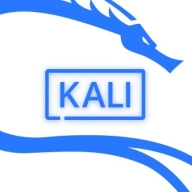

Kali Linux and Debian are both Linux-based but serve distinct purposes: cybersecurity and stability, respectively. Kali Linux provides a superior edge for cybersecurity professionals due to its specialized tools designed for penetration testing and security analysis.
Features: Kali Linux offers pre-installed security tools such as Metasploit, Nmap, and Wireshark, making it highly effective for cybersecurity assessments. It also supports a live USB boot, allowing for rapid deployment and use without installation. Meanwhile, Debian boasts a wide range of software packages, excellent for maintaining stability across various applications, and prioritizes a secure and consistent OS environment.
Room for Improvement: Kali Linux can be more user-friendly for less experienced users by simplifying its complex setup focused on security tasks. Its documentation could be more organized for easier navigation. Furthermore, broader compatibility with mainstream software could enhance its versatility. On the other hand, Debian could improve its package update speed to include more recent tools. It might also benefit from integrating more cutting-edge cybersecurity tools. Simplifying its installation process could attract a more general audience.
Ease of Deployment and Customer Service: Debian is renowned for its straightforward deployment process, supported by comprehensive documentation and a large community for troubleshooting. Kali Linux, while slightly more complex due to its specialized nature, offers detailed guides aimed at security professionals, with support forums focusing on security issues and technical setups.
Pricing and ROI: Both Kali Linux and Debian are open-source and free, thus offering cost-effective solutions. Debian's reputation for stability may reduce long-term maintenance costs, enhancing ROI for extensive projects. In contrast, the advanced security tools in Kali Linux can expedite security evaluations, providing a faster ROI in environments focused on cybersecurity projects.
| Product | Market Share (%) |
|---|---|
| Kali Linux | 3.3% |
| Debian | 5.0% |
| Other | 91.7% |

| Company Size | Count |
|---|---|
| Small Business | 10 |
| Midsize Enterprise | 2 |
| Large Enterprise | 14 |
Debian is a reliable open-source operating system ideal for servers and desktops. With its wide array of packages and stable releases, it suits developers and organizations seeking dependable performance and security.
Debian stands out for its stability and extensive package repository, making it a go-to choice for developers. Its open-source nature ensures transparency and flexibility. Debian's package management system, APT, simplifies software installation and updates. Its security updates are regular and prompt, ensuring systems are protected. With support for multiple architectures, Debian caters to various environments from desktops to large-scale servers.
What are the key features of Debian?Debian is widely used in industries such as web hosting, scientific research, and education, where reliability and long-term support are priorities. Its flexibility allows it to be adapted for specialized applications in scientific computing or educational environments, ensuring it meets industry-specific technical requirements.
Kali Linux is widely used by organizations for penetration testing, vulnerability assessments, web application security, network audits, ethical hacking, and open-source intelligence, providing extensive free features.
Organizations run Kali Linux in virtualized environments alongside other operating systems, employing tools for automated scans, malware identification, infrastructure testing, and application development or hosting. These users benefit from lower maintenance requirements and a smaller footprint. The toolset includes Nmap, SQLMap, Metasploit, and Hydra, ensuring effective security assessments. Its high scalability, performance, user-friendly interface, and extensive documentation enhance the platform's usability. Known for stability, flexibility, and virus resistance, Kali Linux supports web security, troubleshooting, and configuration tasks comprehensively.
What are the most important features of Kali Linux?
What benefits and ROI should users look for in reviews?
Kali Linux can support industries in improving security through stable and flexible environments that resist viruses and provide extensive documentation. Users employ it for web security, troubleshooting, and configuring capabilities. Necessary improvements include automation, user-friendliness, and integrating AI and blockchain. Enhancements in security features, faster installations, and better learning tools are also essential. Machine learning integration and non-enterprise user functionalities can address current limitations.
We monitor all Operating Systems (OS) for Business reviews to prevent fraudulent reviews and keep review quality high. We do not post reviews by company employees or direct competitors. We validate each review for authenticity via cross-reference with LinkedIn, and personal follow-up with the reviewer when necessary.